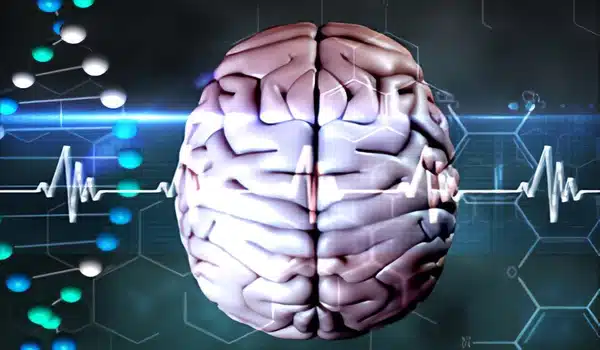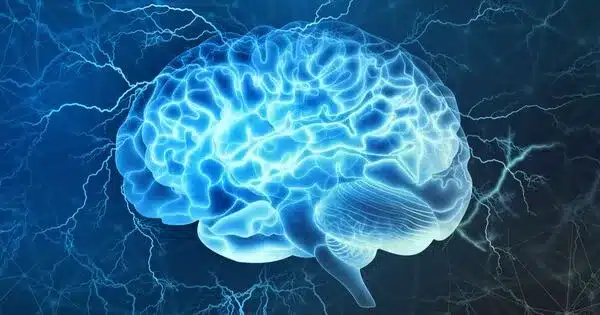Astrocytes are glial cells in the central nervous system that play an important role in supporting and regulating neuron function. While astrocytes were previously thought to have primarily supportive functions, recent research has revealed that they play important roles in synaptic transmission, neurovascular coupling, and brain homeostasis maintenance.
According to a preclinical study led by Weill Cornell Medicine researchers, people with dementia have protein buildup in their astrocytes, which may cause abnormal antiviral activity and memory loss.
Dysfunction in neurons, which transmit messages throughout the brain, has long been suspected as the cause of dementia-related cognitive deficits. However, according to a new study published in Science Advances, abnormal immune activity in non-neuronal brain cells called astrocytes is enough to cause cognitive deficits in dementia. The discovery could lead to new treatments that reduce astrocytes’ excessive immune activity and its negative effects on other brain cells and cognition.
“Astrocyte dysfunction alone can drive memory loss, even when neurons and other cells are otherwise healthy,” said co-senior author Dr. Anna Orr, the Nan and Stephen Swid Assistant Professor of Frontotemporal Dementia Research in the Feil Family Brain and Mind Research Institute and a member of Weill Cornell Medicine’s Helen and Robert Appel Alzheimer’s Disease Research Institute. “We discovered in mice that astrocytes can cause cognitive decline through antiviral activities, which can cause neurons to become hyperactive.”
While neurons have been extensively studied in dementia and other diseases, much less research has been conducted on astrocytes, which many scientists believe play only supporting roles in brain health.
Astrocyte dysfunction alone can drive memory loss, even when neurons and other cells are otherwise healthy. We discovered in mice that astrocytes can cause cognitive decline through antiviral activities, which can cause neurons to become hyperactive.
Dr. Anna Orr
“We are very interested in the roles of astrocytes in cognitive and behavioral disorders,” she said. “These cells are prevalent in the brain and perform various key functions, but their involvement in neurocognitive disorders like dementia are poorly understood.”
When the researchers examined tissue samples from deceased people with Alzheimer’s disease or frontotemporal dementia, including first author Dr. Avital Licht-Murava, a former postdoctoral associate in the Orr lab, they discovered an accumulation of a protein called TDP-43 in astrocytes within the hippocampus, a brain region critical for memory. The researchers conducted a series of experiments in mouse models and laboratory-grown brain cells to better understand the effects of this protein buildup. Dr. Robert Schwartz of Weill Cornell Medicine and Dr. Robert Froemke of New York University are two other senior investigators who contributed to the study.
In mice, the build-up of TDP-43 in astrocytes was sufficient to cause progressive memory loss but not other behavioral changes. “Astrocytes in the hippocampus seem to be more vulnerable to this pathology.” she said.

Dr. Adam Orr, an assistant professor of research in neuroscience in the Feil Family Brain and Mind Research Institute and a member of the Appel Alzheimer’s Disease Research Institute at Weill Cornell Medicine, analyzed gene expression and discovered high levels of antiviral gene activities even though no virus was present in the brain. Astrocytes produced an abundance of immune messengers known as chemokines, which can activate the CXCR3 chemokine receptors found on infiltrating immune cells. The team was surprised to find that CXCR3 receptor levels were elevated in hippocampal neurons, and that excessive CXCR3 receptor activity made neurons “hyperactive,” according to Dr. Anna Orr.
“Blocking CXCR3 reduced neuronal firing in individual neurons and eliminating CXCR3 in mice by genetic engineering alleviated cognitive deficits caused by astrocytic TDP-43 build-up,” Dr. Adam Orr said. These experiments demonstrate that impaired astrocytes can have a detrimental role in dementia, he said.
Both investigators were excited by the potential clinical implications of their findings.
“For effective therapeutics, we need to consider astrocytes along with neurons,” Dr. Anna Orr said.
Drugs that target the identified immune pathways might help improve cognitive function in people with dementia. She noted that scientists are already testing CXCR3 blockers to treat arthritis and other inflammatory conditions in clinical trials. These drugs could be tested and potentially repurposed for dementia.
This research could also shed light on how antiviral immune responses can lead to cognitive dysfunction. Virus infections have previously been linked to Alzheimer’s disease and long-term neurocognitive effects such as memory loss and brain fog. Atypical immune activity in astrocytes may contribute to these cognitive effects as well as increase individuals’ susceptibility to viral infections, which may worsen brain health and contribute to some cases of dementia.
The researchers are currently investigating how TDP-43 alters antiviral activities in astrocytes and whether these changes make the brain more susceptible to viral pathogens.
“Astrocytes can promote resilience or vulnerability to brain disease,” according to Dr. Anna Orr. “Understanding how they enable cognitive function or cause cognitive decline will be critical to comprehending brain health and developing effective therapies.”
















